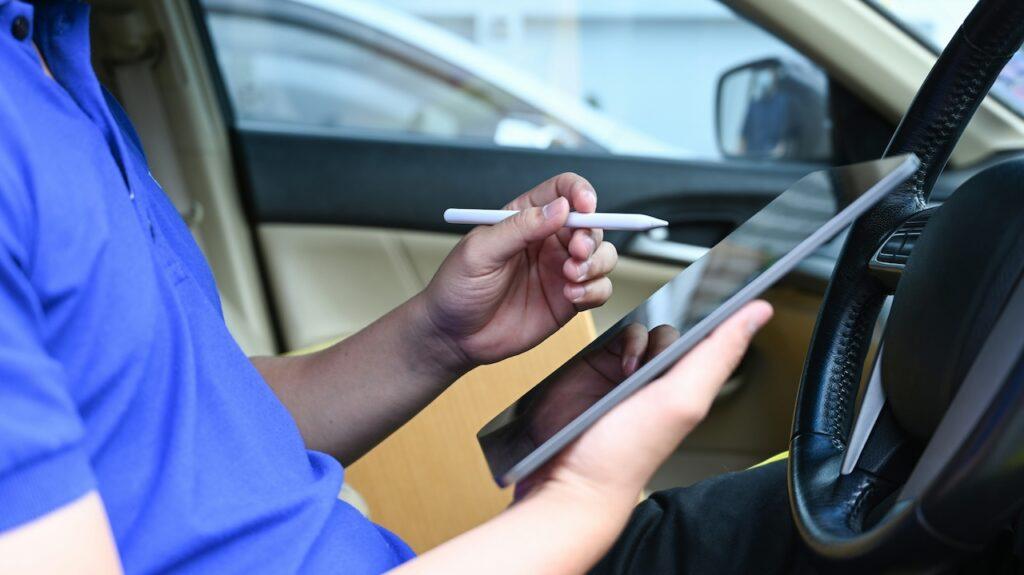
Beverage workers are ultimate industrial athletes. They are asked to load bulky heavy materials, drive big industrial vans and rigs on Georgia’s busiest highways, unload the freight, and then stock the merchandise on many occasions. If you are a beverage delivery driver, you will likely find yourself moving at a rapid pace at the beginning of the new year as demand for goods increases. This means that although the holidays are a time for celebration, they were also a time for caution, as more deliveries, tighter deadlines, and cold weather conditions can place you at a higher risk for injuries. As such, it is a good idea to understand the potential dangers of making deliveries during this time and what to do if you are injured.
Common Risks Beverage Delivery Drivers Faced During the Holidays
As many delivery drivers can attest, delivering goods during the holidays was not only more physically taxing; it is faster, involves more stops, and usually more goods. Holiday deliveries may have provided a way for you to earn a little extra cash, but these deliveries came with an added risk to your safety, and the safety of others. These risks included:
Fatigue
Fatigue is one of the most common difficulties delivery drivers deal with. Even if you are not a long-haul driver, and your route involves numerous stops and takes you through city traffic, you were still at risk. Additional shifts, more deliveries, and rush orders can make your days longer, more stressful, and more exhausting. Fatigue can lead to mistakes, forgetfulness, and distraction at the wheel.
Overloaded Trucks
As a driver, you know your truck handles differently depending on how much freight you are halting. Most drivers rely on teams to load their trucks properly. Ensuring the proper weight and balance keeps you and other vehicles safe on the roads. However, additional orders and special requests during the holidays can cause workers to overload trucks in an attempt to get products to their customers faster. Overloaded trucks handle differently on the road, especially when combined with slippery or icy conditions.
Tighter Schedules
During the summer, you may have had a comfortable number of stops on your route. The holidays ramped up your workload and made it harder for you to meet the delivery guidelines your employer sets for you. Tighter schedules can lead to driving over the speed limit, making careless mistakes, or feeling stressed behind the wheel.
Improper or Overlooked Maintenance
Your employer and/or the operator and owner of your truck have a responsibility to keep it in good repair. If routine maintenance was skipped to keep your truck on the road more during the holiday season, there was a potential for accidents. Worn-out brake pads, blown-out tires, and engine trouble can result in lost time at best or injuries at worst.
Increased Road Congestion
Between the end of November and the beginning of the New Year, more people were driving to visit family and friends. In addition, delivery trucks had a heavier presence. This increased congestion on the roadways creates the potential for more accidents and necessitates even more careful driving.
Poor Weather Conditions
The holiday season presented weather challenges for all drivers, but especially those driving in regions where snow, sleet, and ice are most common. In addition to the potential for a vehicle accident, these weather conditions can also pose a risk when you are outside of your truck. Slips and falls, strained muscles, and back injuries can occur due to slippery surfaces and obstacles covered in snow.
Preventing Injuries as a Beverage Delivery Driver
Operating your truck as safely as possible will require additional attention. Here are five quick tips for staying safe.
- Be patient. It is understandable to rush when you have a tight deadline and are anxious to get your deliveries made, but being in an accident can leave you with serious injuries and put you out of commission for an extended period. It is best to slow yourself down and drive carefully, being mindful of road conditions and other drivers.
- Check your truck. Even though you may not be responsible for the maintenance or loading of your truck, you should double-check the load to ensure it is secure and perform a walk-around inspection to ensure that your truck is visibly safe.
- Do not exceed your hours. It can be tempting to get in extra hours, but if it involves working past your legal limit, it is never a good idea.
- Avoid the Jake Brake in icy conditions. The Jake Brake will cause your tires to skid on ice, so using it when the roads are questionable is not a good idea.
- Try to avoid lane changes as much as possible. With additional traffic on the roads, it is possible that a lane change that is not necessary can increase your risk of having an accident.
In addition to keeping yourself safe while driving, it is a good idea to review safety precautions for yourself while you are out of your vehicle.
- Avoid lifting too much. Carry one box at a time or use a trolley.
- Wear appropriate braces (like back, knee, or elbow) as necessary.
- Do not get out of your vehicle for delivery until you have completely verified that the street is clear and you are safe to exit.
- Take breaks after being seated for long periods.
An ounce of holiday prevention is worth a pound of cure. However, If you are injured while at work, you should know how to get the help you need with filing a claim.
Coca-Cola Employee Injury Claims: What to Do After a Workplace Accident
If you have an accident while making a delivery as a Coca-Cola driver, there are some initial steps to take to ensure your safety and the safety of others around you.
- If possible, exit your vehicle and ensure your safety and that of others involved in the accident.
- Call for emergency services if needed.
- Move your truck to the shoulder (if possible).
- Call the police to file a report.
- Follow company protocol about flares, hazard lights, cones, etc.
- Collection of contact and insurance information with other parties.
- Do not make any comments about the cause of the accident or who is at fault.
- Head to the nearest medical facility for a head-to-toe assessment, even if you do not think you are injured.
As a Coca-Cola employee, you will likely be able to seek compensation for your injuries by filing a workers’ compensation claim. You should notify your supervisor or manager about your accident as soon as possible to ensure that you are eligible to receive benefits.
How to File a Workers’ Comp Claim in Georgia
If you are injured on the job this season and need to file a workers’ compensation claim, the first step is to notify your employer of the accident and your injury. Fill out any paperwork they have for you. Next, you will need to get a physical examination. Workers’ compensation laws in Georgia require most employers to have a panel of physicians or contract a managed care organization, and you must use these resources for treatment and care. It would be in your best interest to retain an experienced workers’ compensation attorney to help protect your interests throughout the claims process.
Next, gather the information you will need to submit with your claim. Typically, you need your injury-related documents (like diagnosis and treatment statements, receipts, and billing statements), and recent pay stubs.
After your claim is received, you can continue with your medical treatments. The timeline for when your claim will be reviewed can depend on many factors, but in many cases, you may begin receiving payments within 21 days.
Why Hire a Workers’ Compensation Lawyer?
Filing for and receiving workers’ compensation in Georgia is very complicated. Having an experienced workers’ compensation attorney on your side ensures the leveling of the playing field as the adjusters exist to lowball you at every curve.
If you are a beverage driver who has been injured on the job and needs to file a claim, contact Ramos & Law today. Contact us to schedule a consultation and find out how we can help you get the compensation you deserve.
